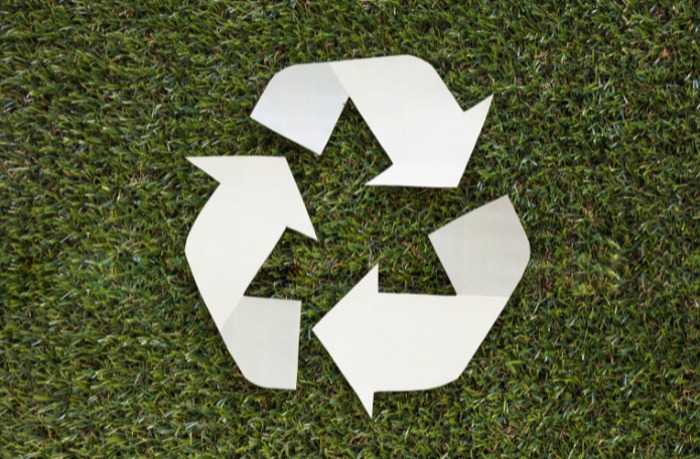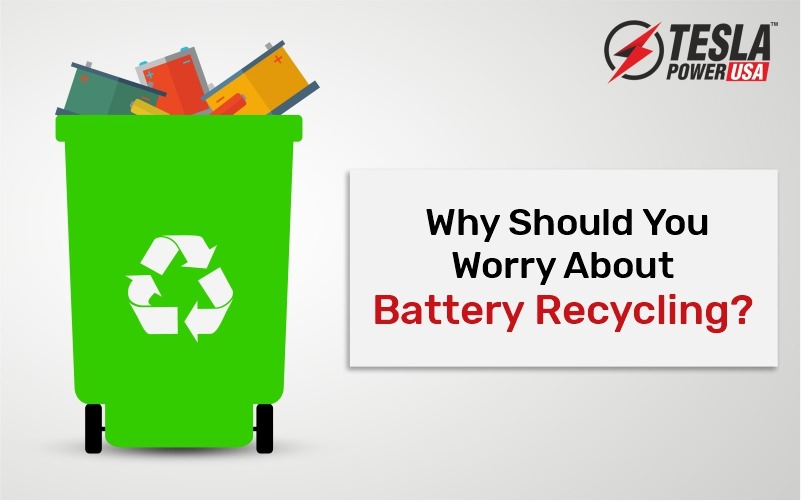There has already been a dramatic growth in battery consumption, development, and existence. The fact that people own technologies that use electricity contributes to this need.
Mobile phones, computers, and image sensors are examples of these electronic gadgets. Electronic devices are based on rechargeables, which turn biochemical energy into electricity. The anode and cathode,
located on opposing ends of a battery, create an electrical connection that transmits power to an electrical appliance.
After their complete utilization, these batteries should be disposed of carefully but this isn't the case as billions of batteries end up in landfills each year. Although it may appear that discarding
batteries is innocuous, that can have disastrous negative impacts on the environment.
Why should you worry about recycling?
You may think that your energy consumption may not be very high as compared to big industries, so it does not matter if you do not recycle your batteries. The truth is, recycling is essential irrespective
of the scale of operations because your effort will make a difference in your community and encourage more people to join in. It will create a chain reaction and make a big group of people commit to
recycling.

What are the harmful effects of non-recycled batteries?
If you think that your discarded batteries will not cause any harm just because they are small, think again. Sulfur, chromium, cobalt, and lead are among the dangerous, poisonous, and corrosive compounds
found in each battery.
Here are a few points that draw our attention to the negative effect of cells on our surroundings.
1. Pollution
Batteries that have been drained or used are thrown away and wind up in the trash, where they degrade and spill. When batteries fail, the chemicals leak into the earth, contaminating soil and water. These
toxins seep into the surface of the earth and contaminate our ecosystem. It indicates that we may be consuming hazardous metals when we consume from tap water faucets or rivers.
2. Fires
Did you realize that lithium-ion batteries that have been incorrectly discarded can be exceptionally volatile?
Lithium batteries can start fires in landfills that can burn for years and releases harmful compounds into the air that harms human health and contribute to climate change. The vaporized form of poorly
exposed batteries is also caught in the environment, polluting lakes and streams as rain.
3. Health problems
Lead and powerful corrosive acids inherent in cells can cause a burning sensation and harm our face and eyes if released into the environment. We can acquire malignant impairments when these substances
combine with our water and air. Lead, another dangerous metal in batteries, has been connected to medical difficulties such as cognitive and neurodegenerative impairment and genetic abnormalities.
4. Save Money Spent on New Batteries and Save Natural Resources
One of the best advantages of using these replaceable batteries is that they can be recharged and reused. They require fewer batteries to give the same quantity of energy. As a result, there are fewer
opportunities used in the manufacturing phase. The potential savings of someone using battery chargers over throwaway cells is another advantage. Because of their renewability, battery packs save cash for
the user.
So, what's the big deal about recycling batteries?
There are numerous advantages. To begin with, reusing your cells lowers the risk of contamination of our groundwater aquifers. Secondly, recycling cells help in energy reduction used during the extraction
of substances and other components. Lastly, you cut down on the number of toxic chemicals polluting your surroundings.
Tesla Power USA is engaged in making recyclable plants across the country. We make sure that old batteries no longer get tossed away to pollute the environment. We
use old batteries from our customers to help in our manufacturing process and are continuously trying to change this sustainable initiative into a reality.






